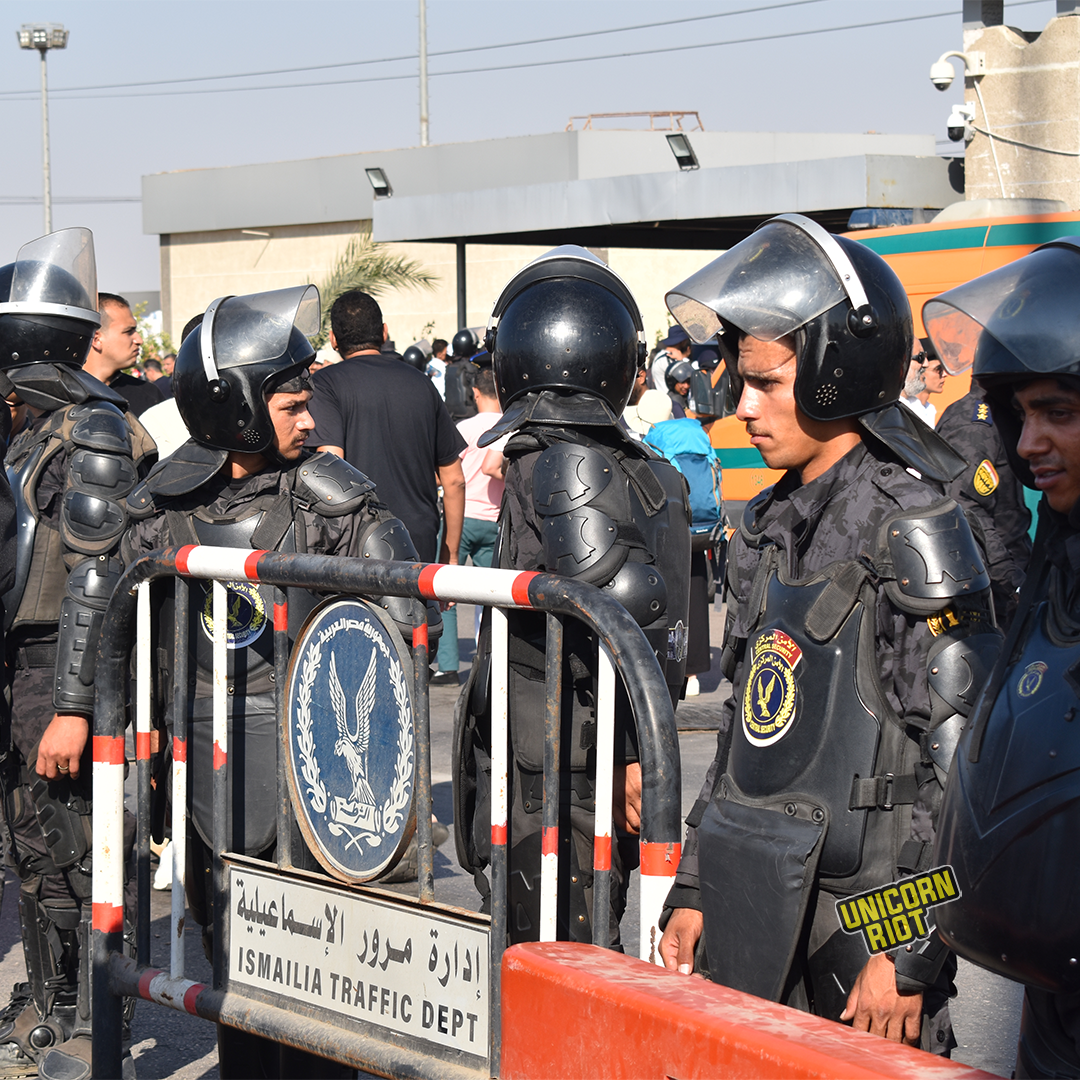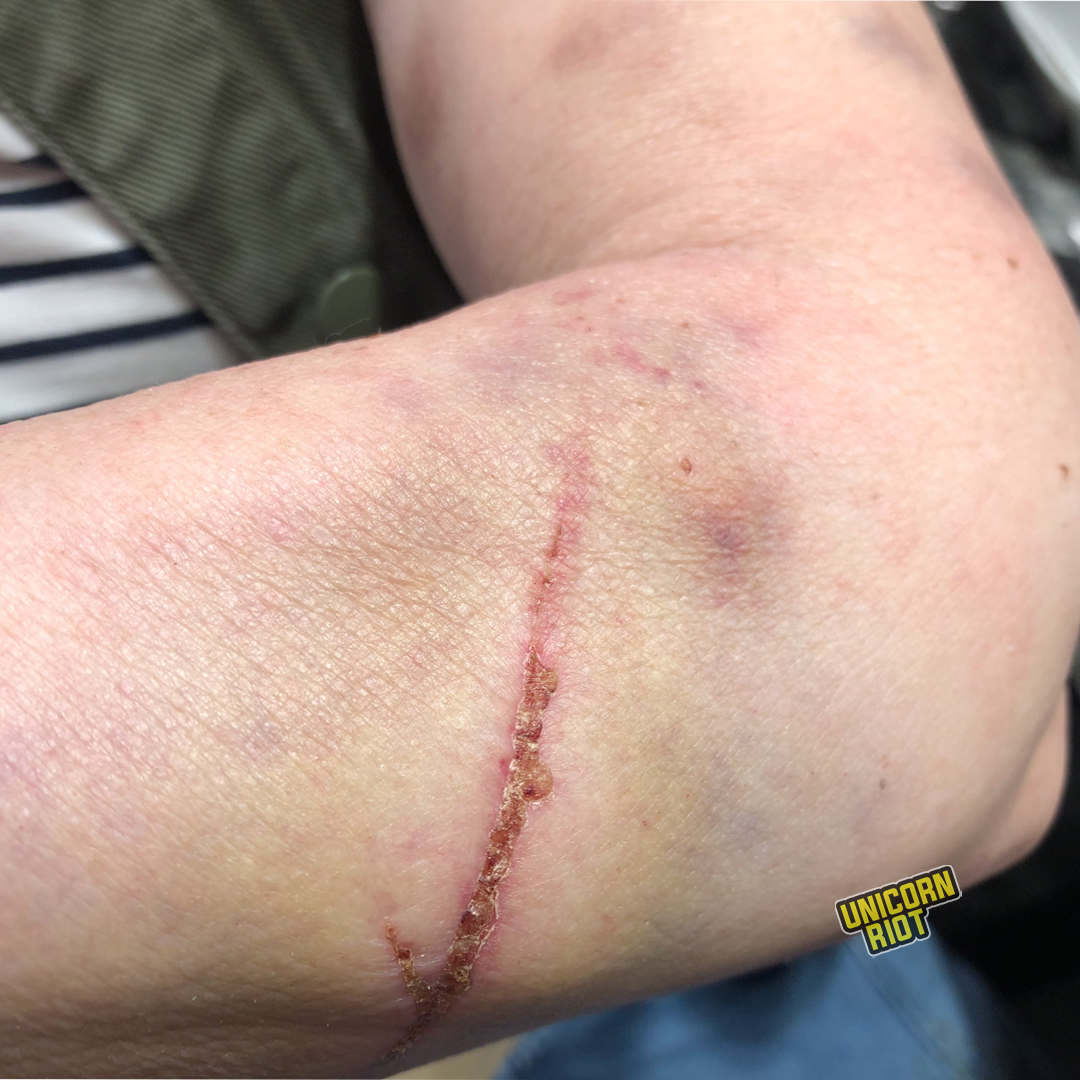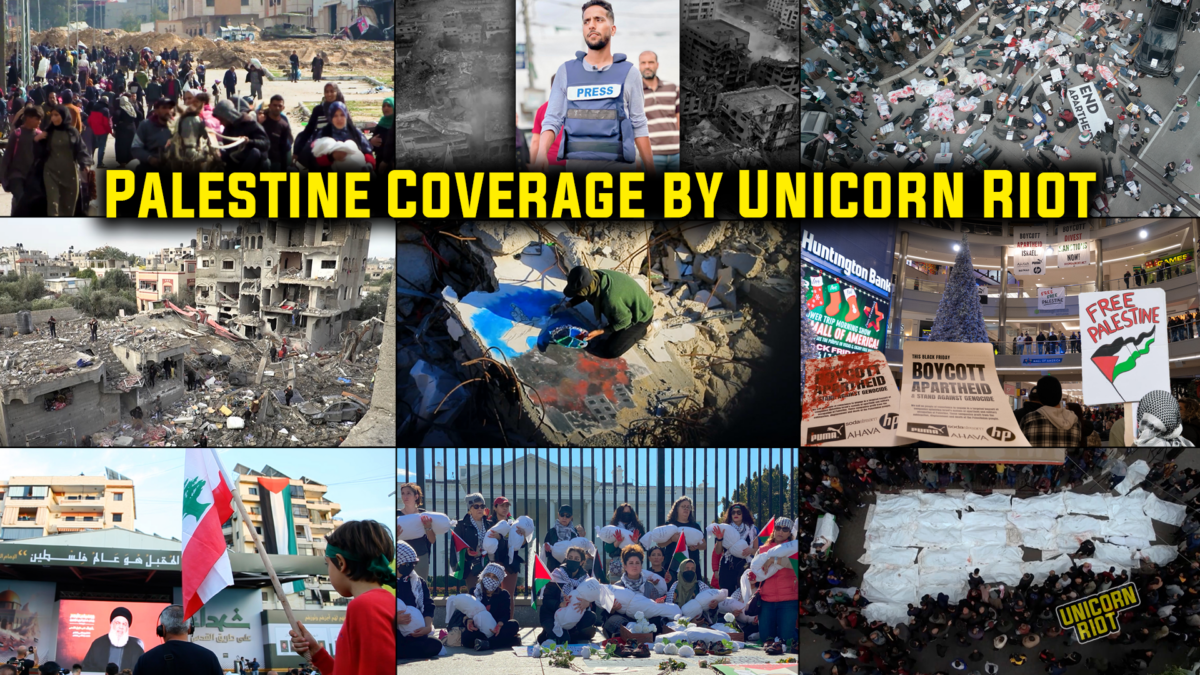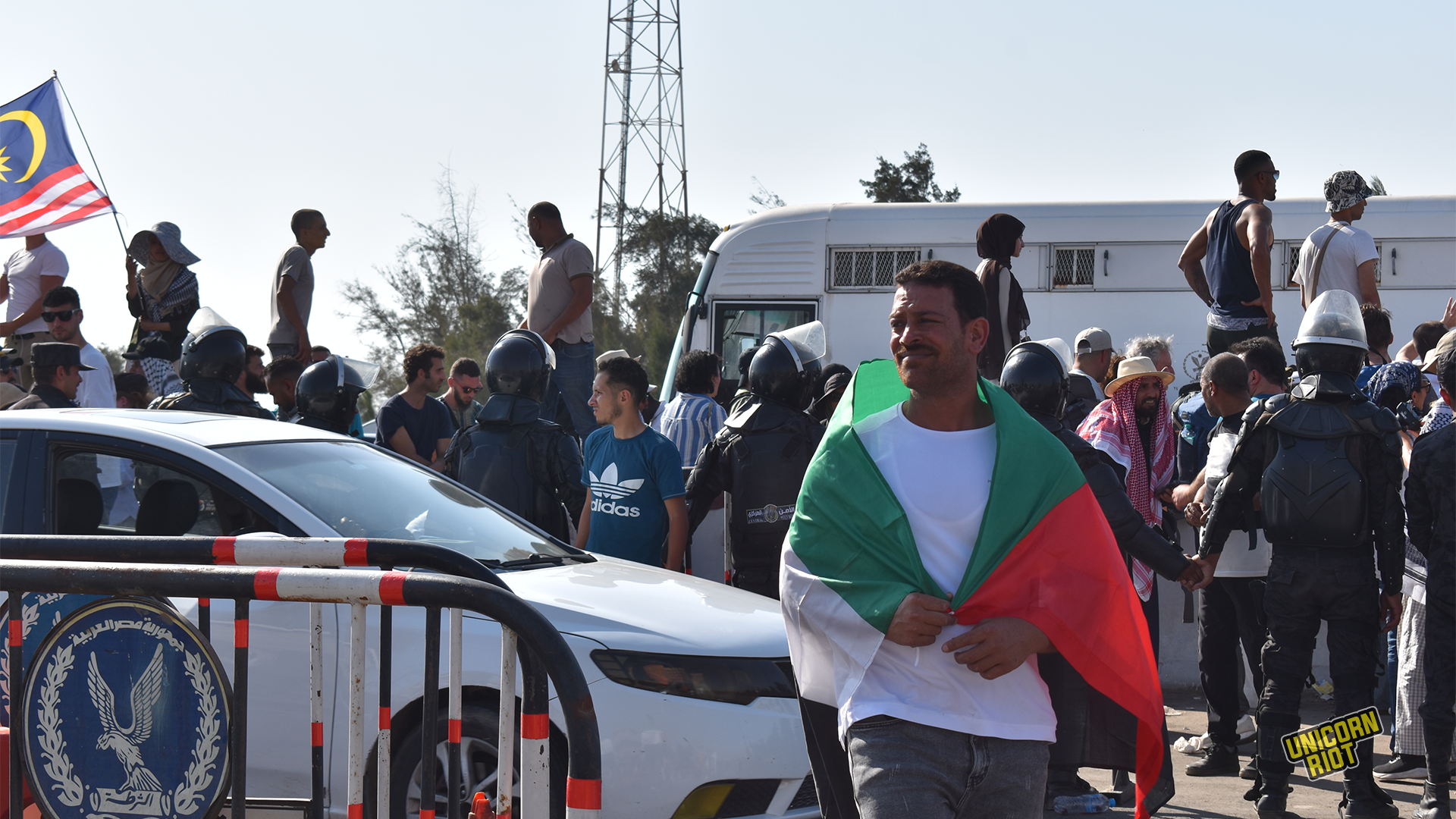Global March to Gaza Violently Repressed by Egyptian Authorities
Cairo, Egypt — Thousands of people departed Cairo on June 13 in an attempt to break the siege of Gaza and demand an end to the genocide of the Palestinian people by Israeli forces. The effort was led by the grassroots movement Global March to Gaza (GMTG) which responded to a call to action in April by the labor movement in Gaza for people to “organize urgent demonstration at the Rafah crossing to demand an immediate and to the genocide.”
The idea of a mass march to Gaza rapidly spread and brought together people from over 80 countries, as far away as Malaysia, Mexico and South Africa. Over 4,000 people registered for the march, with thousands more arriving without having registered. In a press release GMTG stated that it was their “duty as citizens to act” in light of the inaction and complicity of governments around the world in the ongoing genocide.
Activists from the movement had been negotiating with Egyptian authorities to allow for safe passage from Cairo to the border crossing with Rafah. The original plan was for marchers to travel by bus and car to El Arish in the heavily militarized Sinai Peninsula and march for three days across the desert to the border. That plan was rapidly and violently cut short on the first day of the action.
Egyptian police stopped hundreds of people at checkpoints, confiscating their passports. Traffic was snarled for hours. At one major checkpoint the trapped crowd grew to nearly 1,000. Demonstrators launched a sit-in as they waved Palestinian flags and chanted in support of Gaza. The mood was largely positive, even as over 100 riot police encircled those gathered and started to close in.

Nkesi Zwelivelile Mandela, a major voice in this movement and the grandson of Nelson Mandela, also was blocked at the checkpoint. He remained undeterred by the authorities. “We have only one mission: to ensure that we reach the Rafah crossing and that we are able to get humanitarian aid into Gaza,” said Mandela. “Unfortunately we as the international solidarity movement in the Global March to Gaza are not here for the interests of Egypt. We are here for the interest of Palestinians. We can no longer sit idle while babies, children, and women in particular are butchered, massacred on a daily basis through a genocide, ethnic cleansing, war crimes, and crimes against humanity,” he said.
Police informed demonstrators that they would not be allowed through the checkpoint and their only way out was to take police-commissioned buses back to Cairo. Some took their offer but most stayed, set on making it to Rafah. After sunset, a group of over 75 men and teenage boys, many wearing traditional Bedouin clothes, showed up behind police lines. They covered their faces and started throwing bottles at the marchers.
Police allowed these “government paid thugs” — as demonstrators called them — to launch a brutal attack. Some of them used clubs, pepper spray, and whips to beat protestors, and also took the lead in initiating arrests. The melee commenced for over two hours.
I myself was grabbed by the police and thrown in a police truck with a dozen other protestors. Despite informing the authorities that I was a journalist, I was held for a few hours before being released. Both my laptop and camera lens were taken and never returned.
Egypt is ruled by what many experts describe as a military dictatorship, run by President Abdel Fattah el-Sisi. Sisi came to power in a 2013 coup that crushed the gains of the 2011 Egyptian Revolution, which overthrew the 30-year rule of Hosni Mubarak. El-Sisi’s US-backed government has a record of using “baltagiya,” – what Egyptians call hired thugs – to violently attack and repress protests and political dissidents.
Activists were dragged into buses and police trucks, some of them wounded and bloody from the assault. Turkish MP Faruk Dincer was seen staggering away from the crowd with blood streaming down his face. Police officers stole luggage and other possessions from demonstrators in the ensuing chaos. Later, the activists were driven on buses and dispersed across the outskirts of Cairo. Demonstrators caught at other checkpoints and who made it as far as the city center of Ismailia on the Suez Canal, told Unicorn Riot that they too encountered violent attacks by the police.
Three days later, activists recounted the attack. “It was terrible that the Egyptian police actually hired thugs in order to catch us,” said Danielle Pauline Camba from the Philippines who travelled to Egypt for the march. “They attacked me. They whipped me in the back and they really forcefully dragged me on the ground,” she said. Her friend Heike Boulet from the United Kingdom rolled up the sleeves to her shirt to reveal bruises all over her arms, and a major gash across one arm from a whip.

Police also carried out raids at hotels in the middle of the night, creating a general atmosphere of fear. In total, over 400 people were deported either on arrival at Egypt’s airports, or after they were snatched from raids or off the street.
Throughout the week, the city was awash with a larger than usual deployment of police and soldiers, informants, and undercover police officers. Multiple activists were followed, stopped for questioning, and filmed by the authorities. A still unknown number of activists were taken into police stations and interrogated.
The Egyptian government’s subjugation of the march raises more awareness of the role neighboring states have in the ongoing catastrophe in Gaza. “We are now aware that there are enablers that are allowing this genocide to be carried through and we should now shift our focus into exacting pressure on those countries,” Mandela said of Egypt and other states.
Faced with growing repression, march organizers called off any further actions and encouraged people to book earlier flights home. Then on June 16, plainclothes police officers abducted some of the main organizers of GMTG. The group stated on Instagram that “they were blindfolded, interrogated, and brutally beaten,” and that Saif Abukeshek, a Palestinian from Spain and one of the main organizers, “was singled out for especially severe abuse.” They were released a day later.
Many activists who spoke to Unicorn Riot described a pattern of a very specific targeting of, and more intense abuse of Palestinian and Arab activists.
Despite the repression, some activists expressed hope that this is the beginning of something bigger. In support of the march and the people of Gaza, countless demonstrations all over the world – some numbering at 150,000 protestors – erupted spontaneously in solidarity with the march in Egypt as well as with the Madleen Gaza flotilla that was intercepted by the Israeli military.
Other groups made attempts to reach Gaza. The Soumoud Convoy of 1,500 people drove across North Africa to break the siege, only to be stopped by Libyan and Egyptian authorities. There were other marches across the region, of Israelis and Palestinians toward Gaza, and of Syrian and Turkish activists toward the occupied Golan Heights.
All of these attempts to reach Gaza were ultimately crushed, but activists are already talking about the next actions to break the siege. On June 15, organizations in Malaysia announced they will launch a fleet of 1,000 ships to break the siege.
Danielle Camba was not deterred by the violent attacks on the march. “We will not stop until Palestine is free. We will surely come back and come back stronger, and we will join all the protests and marches for the Palestinian cause,” she said.

Please consider a tax-deductible donation to help sustain our horizontally-organized, non-profit media organization:

Follow us on X (aka Twitter), Facebook, YouTube, Vimeo, Instagram, Mastodon, Threads, BlueSky and Patreon.


